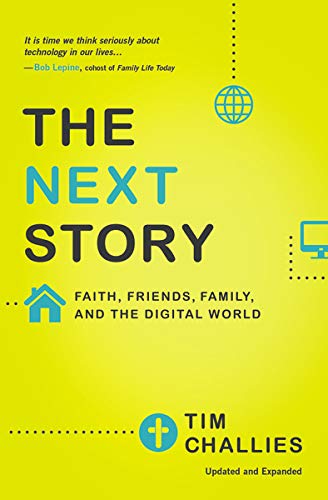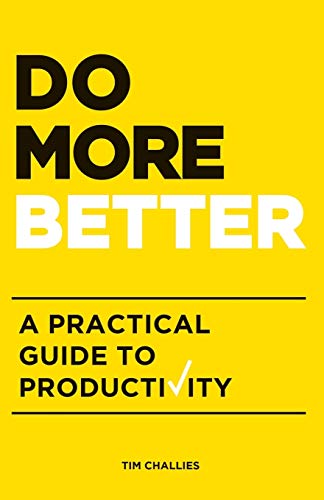
Quotes by Tim Challies
God’s delegated authority, the necessity of submission, the role of government in acting to protect and preserve the health of the people, the call for respect and honor—I find myself joyful, grateful. I am joyful to obey the mandates of my government as it tries to lead through a grueling, opaque situation. I’m grateful for God’s good gift of government, and grateful even for my government. Behind it, I see Him. In its authority, I see His. Of course, this government will lead imperfectly. They will make poor decisions. They will make mistakes. They will even act sinfully at times. They are, after all, human beings and subject to every kind of frailty, sin, and limitation. But God was not unaware of what was in the heart of men when he commanded through Peter “be subject for the Lord’s sake to every human institution, whether it be to the emperor as supreme or to governors as sent by him” (1 Peter 2:13-14).
I [do not] necessarily understand every decision or… agree with every action the various levels of government have taken. But that’s the very nature of submission. God doesn’t call us to follow leadership only when we fully agree with it. It has struck me that the New Testament’s posture toward civil leaders is generally positive. It seems to nudge us toward the assumption that governments are acting wisely, not foolishly; that our opinion toward their actions should generally be favorable, not skeptical; that our words about them should be supportive, not rebellious; and that our response to their decrees should generally be submissive, not resistant. Romans 13:1-7 is not about the limits of governmental authority, but about the goodness and necessity of Christian obedience. The same is true of 1 Peter 2:13-17 and Titus 3:1, not to mention Matthew 22:21.
I’ve learned even more about just how harmful it can be to allow children or teenagers free reign when it comes to their devices and their access to the Web. We are handing power tools to children and acting surprised when they get badly hurt.
There is one kind of man – the man trapped in the total depravity of his sinful nature, inherited from his father Adam (Rom. 5:18). And since there is only one kind of man, there is only one kind of salvation – faith through the second Adam, Jesus Christ.
Jesus Christ – The Only Way and Our Only Hope by Tim Challies taken from Don’t Call it a Comeback, edited by Kevin DeYoung, copyright 2011, Crossway Books, a division of Good News Publishers, Wheaton Illinois 60187, www.crosswaybooks.org. Page 135.
General revelation communicates truth to everyone – truth that ought to lead each of us to turn to God. And yet nowhere in the Bible is there record of anyone turning to God on the basis of general revelation alone. This shows a problem with neither the revelation nor the Revealer, but rather, with the human being. All men reject this revelation of God.
Jesus Christ – The Only Way and Our Only Hope by Tim Challies taken from Don’t Call it a Comeback, edited by Kevin DeYoung, copyright 2011, Crossway Books, a division of Good News Publishers, Wheaton Illinois 60187, www.crosswaybooks.org. Page 135.
Inclusivism…says that though Christ is the world’s only Savior, a person does not need to hear and believe in the gospel in order to be saved… Inclusivists argue that, while putting one’s faith in Christ is the best way to honor God and receive the benefit of what Christ has accomplished, it is not the only way.
Jesus Christ – The Only Way and Our Only Hope by Tim Challies taken from Don’t Call it a Comeback, edited by Kevin DeYoung, copyright 2011, Crossway Books, a division of Good News Publishers, Wheaton Illinois 60187, www.crosswaybooks.org. Page 131.
We need accountability. Left to our own devices, we will soon devise or succumb to all kinds of evil. As Christians we know that we need other believers to hold us accountable to the standards of Scripture. Passages such as Ecclesiastes 4:12 remind us that “a threefold cord is not quickly broken.” The Bible tells us that “iron sharpens iron” (Prov. 27:17) and that we are to “stir up one another to love and good works…encouraging one another” (Heb. 10:24-25). Life is far too difficult and we are far too sinful to live in solitude. We need community. We need accountability. And God has anticipated our need by giving us the local church as the primary means of this accountability.
When a doctrine or teaching is presented to me, I may examine it and mull it over. I may compare it to Scripture and seek to understand whether it is consistent with what God has revealed about Himself. But once I accept that doctrine I am responsible for it. If the doctrine is false and I choose to believe it, I can expect God to hold me accountable for believing something that is false.
The Heart of Discernment by Tim Challies taken from The Discipline of Spiritual Discernment by Tim Challies, copyright 2007, Crossway Books, a division of Good News Publishers, Wheaton Illinois 60187, www.crosswaybooks.org, page 80.
Truth is what God thinks; it is what God does; it is what God is; it is what God has revealed of Himself in the Bible. Truth is found in its fullest form in God, for He is truth; He is the very source and origin of all truth.
Truth and Discernment by Tim Challies taken from The Discipline of Spiritual Discernment by Tim Challies, copyright 2007, Crossway Books, a division of Good News Publishers, Wheaton Illinois 60187, www.crosswaybooks.org, page 94.
Discernment has both a theological and a moral dimension… The first category where we need to exercise discernment is that of truth and error in relation to what we believe about God. The second category is that of right and wrong in relation to how we act. The first category relates to truth and discernment and the second to God’s will and discernment. These are two broad categories in which we need to exercise spiritual discernment.
The Heart of Discernment by Tim Challies taken from The Discipline of Spiritual Discernment by Tim Challies, copyright 2007, Crossway Books, a division of Good News Publishers, Wheaton Illinois 60187, www.crosswaybooks.org, page 89.
While we are to test everything, this does not indicate that we are to try everything.
The Heart of Discernment by Tim Challies taken from The Discipline of Spiritual Discernment by Tim Challies, copyright 2007, Crossway Books, a division of Good News Publishers, Wheaton Illinois 60187, www.crosswaybooks.org, page 83.
To judge others is to decide that they are doing wrong because they do something the Bible doesn’t talk about or because you think you can guess what is in that person’s heart.
The Heart of Discernment by Tim Challies taken from The Discipline of Spiritual Discernment by Tim Challies, copyright 2007, Crossway Books, a division of Good News Publishers, Wheaton Illinois 60187, www.crosswaybooks.org, page 79.
We may judge doctrine and behavior by the objective standards of right and wrong that are given to us in Scripture. What we may not do though, is judge a person’s heart and motives.
The Heart of Discernment by Tim Challies taken from The Discipline of Spiritual Discernment by Tim Challies, copyright 2007, Crossway Books, a division of Good News Publishers, Wheaton Illinois 60187, www.crosswaybooks.org, page 77.
By studying Proverbs and other portions of the Bible it often seems that discernment is a subset of wisdom. There seems to be a progression from knowledge, which refers to bare facts, to wisdom, which refers to understanding moral and ethical dimensions of facts and data, to discernment, which is the application of wisdom. Wisdom is a prerequisite to discernment. Discernment is wisdom in action.
Defining Discernment by Tim Challies taken from The Discipline of Spiritual Discernment by Tim Challies, copyright 2007, Crossway Books, a division of Good News Publishers, Wheaton Illinois 60187, www.crosswaybooks.org, page 57.
Wisdom allows us to pursue what is good in life, not as judged by our standards but as judged by the Creator. Wisdom allows us to see what is important to God, what values He gives us for our benefit, and it allows Him to teach us how we can pursue them. Wisdom allows us to rightly use knowledge; it allows us to be discerning. Said otherwise, wisdom is knowledge rightly understood.
Defining Discernment by Tim Challies taken from The Discipline of Spiritual Discernment by Tim Challies, copyright 2007, Crossway Books, a division of Good News Publishers, Wheaton Illinois 60187, www.crosswaybooks.org, page 56.
God’s holiness lies at the very heart of the need for discernment. Our passion for God’s holiness, our desire to keep ourselves pure from sin, will motivate our practice of discernment. The greater our understanding of God’s holiness, the greater will be our understanding of the importance of discerning truth from error. We will desire to cast off all that is wrong so that we can be unsullied, unspoiled by sin.
The Challenge of Discernment by Tim Challies taken from The Discipline of Spiritual Discernment by Tim Challies, copyright 2007, Crossway Books, a division of Good News Publishers, Wheaton Illinois 60187, www.crosswaybooks.org, page 50.
God’s name is maligned and blasphemed in the culture around us, and it seems that Christians have increasingly absorbed the world’s understanding of a God who is fun, who exists for our benefit, and who can be the butt of endless jokes.
The Challenge of Discernment by Tim Challies taken from The Discipline of Spiritual Discernment by Tim Challies, copyright 2007, Crossway Books, a division of Good News Publishers, Wheaton Illinois 60187, www.crosswaybooks.org, page 50.
True discernment can be founded only upon a Christian, biblical worldview that allows us to affirm the importance of the antithesis between good and evil.
The Challenge of Discernment by Tim Challies taken from The Discipline of Spiritual Discernment by Tim Challies, copyright 2007, Crossway Books, a division of Good News Publishers, Wheaton Illinois 60187, www.crosswaybooks.org, page 46.
Discernment itself is rooted in the understanding that there is good and bad, that there are God’s ways and other ways. A secular worldview, on the other hand, teaches that truth exists along a continuum. Truth is subjective; it is relative.
The Challenge of Discernment by Tim Challies taken from The Discipline of Spiritual Discernment by Tim Challies, copyright 2007, Crossway Books, a division of Good News Publishers, Wheaton Illinois 60187, www.crosswaybooks.org, page 45.
[God has] helped me understand that accountability is closely tied to visibility and that personal holiness will not come through anonymity but through deep and personal relationships with my brothers and sisters in the local church. And so I have sought to make myself more visible that I may accept correction and rebuke when necessary. At the same time I have renewed my commitment to the One who is always watching and who knows every word I write and every intention of my heart.
To deny that Jesus Christ is the only Savior is to deny the utter seriousness of the human condition and the gravity of the offense against God. To deny that faith is the only way by which we may apprehend Christ’s riches is to deny the uniqueness of the person and work of the Savior and to deny the clarity of His Word. At stake when we consider Jesus’ claims to exclusivity is the gospel itself. The stakes could not possibly be any higher.
Jesus Christ – The Only Way and Our Only Hope by Tim Challies taken from Don’t Call it a Comeback, edited by Kevin DeYoung, copyright 2011, Crossway Books, a division of Good News Publishers, Wheaton Illinois 60187, www.crosswaybooks.org. Page 139.
If any (or almost any) approach to God is as good as another, how do we make sense of the Bible’s insistence on monotheism, its consistent rejection of all forms of idolatry, and the missionary impulse — that the nations would turn to the true God — running from Genesis to Revelation? Most crucially, pluralism cannot do justice to the privileged place the Bible gives to Jesus Christ. Every knee must bow before Him. He will judge all peoples. The God of the Bible, revealed as Yahweh in the Old Testament and incarnated at Jesus Christ in the New, is nothing if not a universal God who accepts no rivals. To reject the unique person and work of Jesus Christ is to make an utter mockery of the Bible. To reject His claims is to reject God Himself and to steal from Him the glory that is rightly His. Ultimately it is to turn one’s back on the Bible and on the God of the Bible.
Jesus Christ – The Only Way and Our Only Hope by Tim Challies taken from Don’t Call it a Comeback, edited by Kevin DeYoung, copyright 2011, Crossway Books, a division of Good News Publishers, Wheaton Illinois 60187, www.crosswaybooks.org. Page 130.


